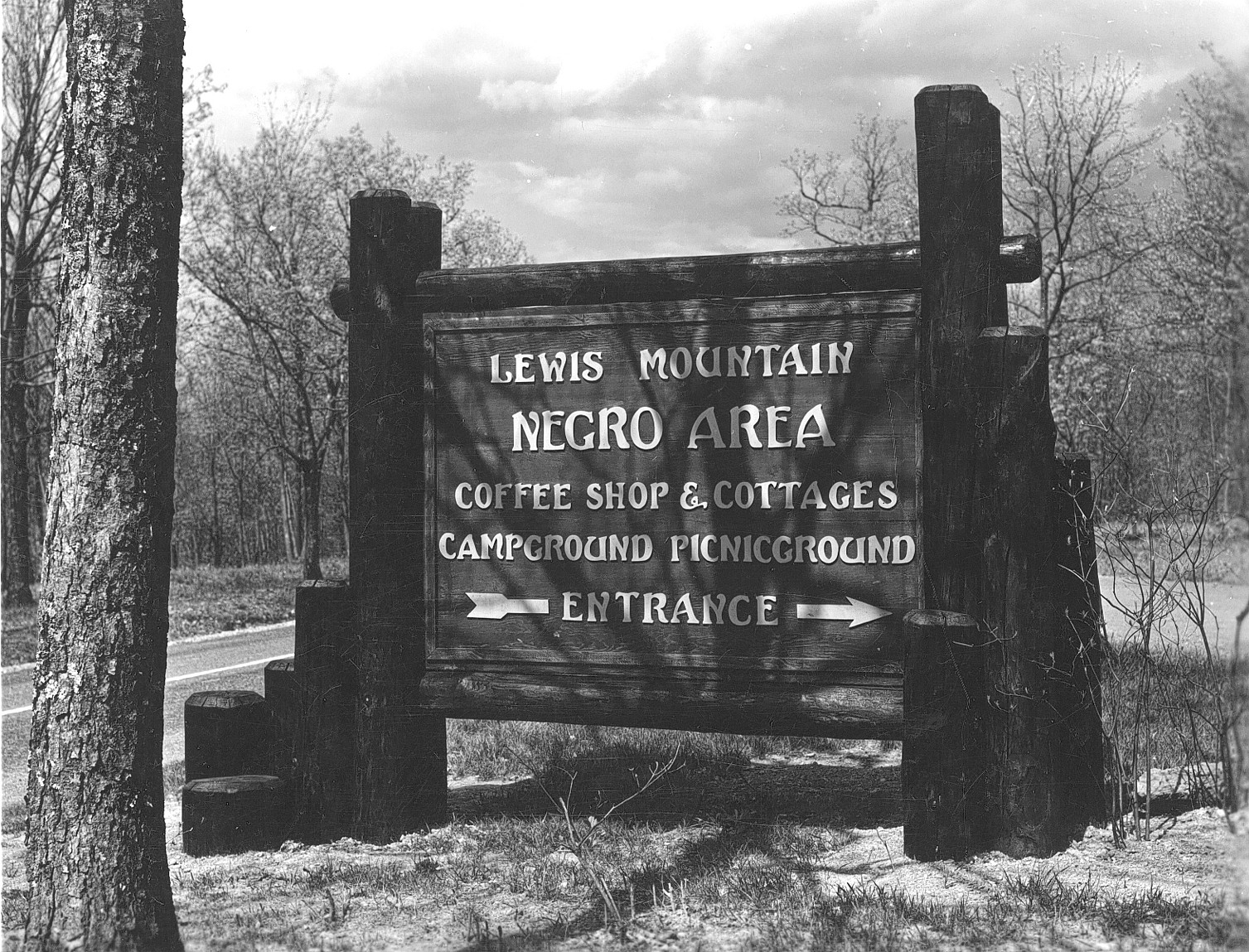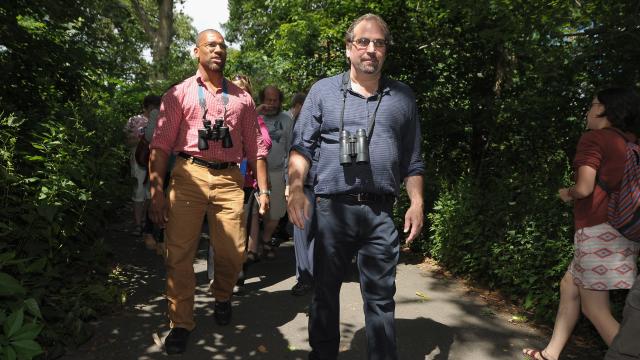The outdoors were never made for people of colour. Since the lack of diversity in green spaces and environmental organisations, so does the ongoing racism people of colour ” especially black people ” experience when they try to enjoy the outdoors. This racism lives on today, even in New York City’s Central Park.
A now-viral video shows Amy Cooper, a white woman, calling the cops on Christian Cooper, a black man, who was birdwatching Monday morning. He had asked that she leash her dog, per the park’s rules. Dogs must always be leashed in the Ramble, the 14.57 ha wooded portion of Central Park home to some 230 bird species where their exchange occurred. Amy didn’t listen, though. Instead, she weaponised her alleged fear to assert her power as a white woman. After all, she fits the bill of who belongs on a birdwatching trail ” not Christian. This stereotype of who spends time outdoors can be dangerous and outright deadly for black people. That’s, in part, why we need to make outdoor spaces more inclusive and diverse.
People of colour often don’t feel safe in white-dominated spaces. Their skin colour is enough to be seen as a threat by some white people. The irony of it all is that Amy told CNN after the video went viral that she was “scared” being alone in the woods. For black people, that fear follows them everywhere.
“That is exactly how black people and people of colour feel just going throughout daily life,” Nailah Blades Wylie, the founder of Colour Outside, a group that focuses on bringing women of colour into the outdoors, told Gizmodo. “That is a large reason why I started Colour Outside. Because I think there is power in people of colour being able to live their lives ” their full, colourful lives ” and be themselves and do all the things that they want to do and take up that space in places that they’re not traditionally supposed to be.”
Oh, when Karens take a walk with their dogs off leash in the famous Bramble in NY’s Central Park, where it is clearly posted on signs that dogs MUST be leashed at all times, and someone like my brother (an avid birder) politely asks her to put her dog on the leash. pic.twitter.com/3YnzuATsDm
— Melody Cooper (@melodyMcooper) May 25, 2020
Traditionally, the outdoors ” and the environmental movement, at large ” has been for white people. The woods were not historically a place black people would go to find peace or solace. For some black people, exploring the woods may trigger past traumas around the lynching their ancestors suffered, often under the cover of a forested night sky.
Outdoors spaces were subject to the same systematic exclusion as other public spaces during segregation. Many national parks once featured “negro areas” where black people were allowed and “whites only” signs designating where black people were not.
This level of overt segregation no longer exists, of course, but its legacy lives on through the discomfort many people of colour feel trying to navigate these foreign landscapes where people of colour have never felt welcome. After all, people of colour are concentrated in urban areas where they’re largely kept out of green spaces by default. Parks are often too far from their homes for them to enjoy, and those parks that are nearby may be riddled with toxic pollutants from local industrial facilities or gang violence, its own form of environmental hazard.
How are communities supposed to care about nature if their main interaction with wildlife is the pigeon shit outside their window? Nature offers positive physical and mental health benefits that these communities simply don’t have access to right now. For those that do, these benefits simply aren’t worth the risk with the Karens of the world around.
When people of colour venture outside their neighbourhoods to explore true wilderness, they’re confronted with another uncomfortable reality: suspicious white people. Wylie spends plenty of time outdoors yet still faces regular questioning from white people hoping to assess whether she belongs. Typical trail questions like, “Where are you from?” may seem innocent, but they can become more loaded when more personal questions follow.
“I’ve had lots of experiences where it’s clear that people are questioning why I’m there, and they are trying to make sure that I belong there,” Wylie said. “That’s aggression in itself”¨.”
She recalled a snowshoeing trip with her family two winters ago where an officer stopped them. He couldn’t believe they were headed to go snowshoeing until the family showed him the gear they had packed. A black family is a rare sight in our national forests: According to a 2016 Forest Service report, just 1 per cent of visitors are black. Other group are equally underrepresented, with Latinx making up 6 per cent of visitors while just 3 per cent were Asian and 2 per cent were Native American. A 2011 National Park Service report found that Latinx and black visitors were more likely to view the parks as “unsafe.”
“As the environmental movement, I think we really need to recognise the risks that different people in our community of advocates and supporters and staff face sometimes just by participating and, certainly, by speaking out in the way that a lot of the community feels perfectly comfortable doing,” Rebeccah Sanders, senior vice president for state programs at the Audubon Society, which condemned the incident in a public statement, told Gizmodo.
When Christian asked Amy to leash her dog, he was speaking out to protect the wildlife in the park he was there to observe and enjoy. He was rewarded with a direct threat to his life. These days, a call to the police can be especially deadly to black men across the U.S. In 2019, black people made up 24 per cent of police deaths despite making up only 13 per cent of the U.S. population. On Monday night ” hours after Christian’s encounter with Amy ” officers with the Minneapolis Police Department killed George Floyd, a black man, after answering a call for an alleged forgery. Floyd was allegedly resisting arrest, though another viral Facebook video, shows an officer holding Floyd down with his knee on his neck while Floyd said, “I can’t breathe.”
This is the reality black men and people of colour face when encountering police. Do I need to remind you of how law enforcement persecutes people of colour? To make matters worse, park rangers have recently been enlisted to double as border patrol, further discouraging people of colour ” particularly immigrant families ” from visiting the parks that are there for the”enjoyment, education, and inspiration of this and future generations” regardless of background.

“It really goes back to remembering that we belong here,” Wylie said. “We built this country, and we deserve to be able to take part in all of the richness of life that everyone else is allowed to without being terrified for our lives”¨.”
It’s time for the environmental movement to open up to everyone. If we’re going to make the outdoors friendlier for communities of colour, advocates and organisers need to come from diverse backgrounds. Right now, white people hold power in these spaces. They sit on the boards of top environmental organisations and run the show. Cooper may sit on the board of the New York City Audubon Society, but he’s the exception, not the rule. This dynamic needs to change both in offices and on the trail.
In our modern society, racism manifests in different ways. For black people, the slightest interaction could be the difference between life or death. What happened Monday in Central Park exemplifies that. Christian’s typical morning of birdwatching devolved into a terrifying example of the realities black people face outdoors.
If we’re to succeed in protecting our delicate ecosystems, we need to find ways for people of colour to safely enjoy them. Until the environmental movement can work with communities to figure that out, the outdoors ” and, in turn, environmental advocacy ” will continue to be a source of discomfort and even danger among people of colour.
